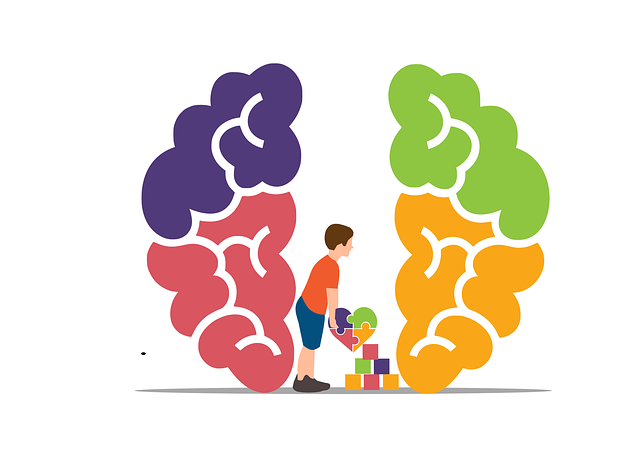Lakewood Depression Therapy offers interactive stress management workshops designed to empower individuals in confronting life's challenges. Through educational content, hands-on activities like group discussions and mindfulness exercises, participants learn coping strategies for personal and professional settings. Central topics include trigger recognition, healthy mechanism development, self-care practices, and risk management planning. The workshops create a supportive environment, promoting emotional healing and resilience to navigate demanding situations with poise, preventing burnout and supporting mental health awareness within communities.
Stress management workshops are a powerful tool for personal growth and well-being. In today’s fast-paced world, understanding and mitigating stress is crucial for maintaining mental health. This article explores the comprehensive guide to organizing such workshops, focusing on Lakewood Depression Therapy as a case study. We’ll delve into the significance of stress awareness, effective workshop design, and successful implementation strategies, offering insights to empower individuals and communities.
- Understanding Stress and Its Impact: A Foundation for Workshops
- Designing Effective Stress Management Workshops
- Implementing and Promoting Lakewood Depression Therapy Workshops
Understanding Stress and Its Impact: A Foundation for Workshops

Stress is an inevitable part of life, but understanding its nature and impact is essential for effective management. Workshops focused on stress management provide a valuable opportunity to explore this topic in depth. By delving into the causes and effects of stress, participants can gain insights into their own experiences and learn strategies to cope. Stress isn’t merely a mental state; it has physiological and behavioral manifestations that can lead to burnout prevention and even anxiety relief if left unaddressed.
In these workshops, facilitators often emphasize emotional regulation as a cornerstone for managing stress. Learning to recognize triggers, understanding individual responses, and developing healthy coping mechanisms are key components. This process forms the basis for individuals to navigate stressful situations more effectively, fostering resilience and promoting overall well-being—a service that Lakewood Depression Therapy aims to provide through its specialized programs.
Designing Effective Stress Management Workshops

Effective stress management workshops require careful planning and design to cater to the diverse needs of participants. At Lakewood Depression Therapy, we understand that stress is a pervasive issue affecting individuals from all walks of life. Therefore, our workshops aim to provide practical tools and techniques for managing stress in both personal and professional settings. The key to successful workshops lies in interactive and engaging formats that encourage active participation. This may include group discussions, role-playing scenarios, mindfulness exercises, and even brief relaxation breaks to help participants process information effectively.
When designing these workshops, it’s crucial to incorporate a mix of educational content and hands-on activities. Topics such as identifying stress triggers, cultivating healthy coping mechanisms, improving communication strategies, and integrating self-care practices should be central to the curriculum. Moreover, for mental health professionals, incorporating risk management planning into the workshop can enhance their ability to support clients facing stress-related challenges. By fostering a supportive and inclusive environment, participants can explore their stress responses while learning valuable skills to navigate demanding situations with resilience and poise.
Implementing and Promoting Lakewood Depression Therapy Workshops

Implementing Lakewood Depression Therapy workshops is a proactive step towards fostering mental health awareness and facilitating emotional healing processes within the community. These therapeutic sessions offer a safe space for individuals to navigate through stress, anxiety, and potential depression, promoting burnout prevention strategies. By organizing such workshops, organizations can play a pivotal role in empowering people with effective coping mechanisms and enhancing overall well-being.
Through interactive activities and evidence-based techniques, participants will learn valuable tools to manage their mental health effectively. The focus on Lakewood Depression Therapy ensures that the sessions are tailored to address specific challenges, providing personalized support for each attendee’s unique journey. Moreover, promoting these workshops can be done through various channels, leveraging social media, community partnerships, and employee advocacy programs to reach a wider audience interested in prioritizing their mental health and well-being.
Stress management workshops, as exemplified by the successful implementation of Lakewood Depression Therapy programs, are powerful tools for enhancing mental well-being. By understanding the root causes and impacts of stress, these workshops can be tailored to meet diverse needs. Effective design, comprehensive content, and active promotion ensure their success in fostering resilience and improving quality of life. Incorporating evidence-based practices like those used in Lakewood Depression Therapy can revolutionize how individuals navigate and overcome stress, ultimately leading to healthier, happier lives.














